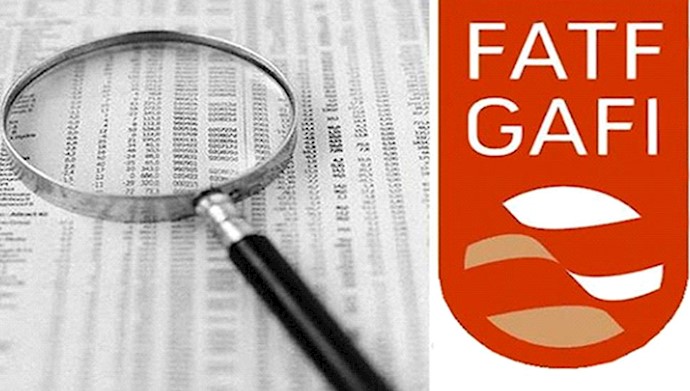Analysis by PMOI/MEK
Feb. 22, 2019 – The controversy over approving the necessary bills to conform to FATF’s anti-money-laundering standards has reached a new height, following the Warsaw summit and Munich Security Conference, increasing pressure over the Iranian regime’s terrorist activities in the Middle East, chronic economic crises, a new round of Iran’s native currency’s devaluation, and the ruling theocracy’s increasing horror of exploding discontent among the population.
On February 19, Ebtekar newspaper, close to the faction of regime president Hassan Rouhani, described the situation as a struggle about “a major interest” in a limbo of “widespread uncertainty” and wrote: “Currently, the political system is stuck in a limbo to decide over a major interest; leaving a widespread uncertainty that confronts the management of the situation with increasing obstacles. Obviously, recognizing interests happens in uncommon situations; situations where it is neither entirely good nor entirely bad, but it is a decision between bad and worse and not between good and better.”
The article further states that the Iranian regime’s interests aren’t in “fanning protests” and addresses the opposing faction, saying: “recognizing interests isn’t possible but with accepting responsibility and its consequences.”
On the other side, Gholam-Ali Haddad-Adel, close to regime Supreme Leader Ali Khamenei’s faction and member of the Expediency Council, where the FATF bills’ fate is up for decision, attacks the opposition who argues that improving the livelihood of the people depends on passing the FATF bills: “The people’s livelihoods don’t depend on Palermo and FATF. The government must not lay the blame on others in respect with the FATF. These gentlemen themselves say that joining the Palermo convention doesn’t guarantee that the situation will improve.”
Ahmad Vahidi, former commander of the Quds Force, the IRGC’s foreign terrorist arm, a wanted person by the Interpol since 2007 for his participation in the bombing of the Jewish community center in Buenos Aires, and current member of the Expediency Council, says: “This system [FATF] is part of the global hegemonic regime of the U.S. and some western countries. The goal of such a system is to control [other] countries independently outside of United Nations framework; In fact, FATF is a military, security, political, and intelligence regime that works in the framework of an economic system.”
Being lectured about international laws and standards by a globally wanted terrorist who happens to decide over the expediency of important matters to the World’s number one state-sponsor of terrorism is outright epic.
“We have to clearly say to the world that we won’t respect any of their sanctions and rules that prevent us from circumventing sanctions and cover our national interests, nor will we let others do that,” he added.
Shargh newspaper, close to Rouhani, quoted an economist on February 17: “All parts of the economy are working with difficulty… unfortunately, there are similarities between Iran and Venezuela.”
September last year, Salam-e No website also wrote: “Unfortunately, looking at the similar economic solutions to the problems in Venezuela’s economy, you can more confidently claim that the two countries’ economies are similar.”
In a nutshell, Khamenei’s faction argues that FATF had no economic benefits for Iran and joining FATF will have devastating, toxic effects on the whole regime.
On the other hand, Rouhani’s faction holds that the current economic situation is unsustainable since a vast majority of the population is increasingly discontent with the regime and cannot afford their minimum livelihood. So, they argue, the Islamic Republic has to choose the lesser evil.
Four days ago, in his visit to Bandar Abbas, Hassan Rouhani described the dire situation of his regime saying: “Some people don’t believe we are in a wartime situation. In war, in the battlefield there are mortars and cannon shells, there is also bombing and direct bullets and some will die, become injured or go missing. We cannot say you should leave the battle and think about this young man who is shot. This guy is dying, and you are caring about the country’s independence? What do we want to do with the country’s independence? Give us bread! Rescue the life of this young man! We need to understand the country’s situation and see what situation we’re in.”
While Rouhani’s faction knows that not conforming to FATF’s standards will bring the Iranian economy under more strain, fact is that even accepting it won’t help the regime much.
If Tehran does not conform to FATF, it will face more economic and political pressure and isolation which will only accelerate its economic downfall and popular unrest.
But if it does accept FATF, the theocrats must abandon their ideological foundations and political claims which will work like a fatal poison in the whole power structure of the regime, while the economic benefits will be minimal since they won’t be able to mitigate U.S. sanctions.





